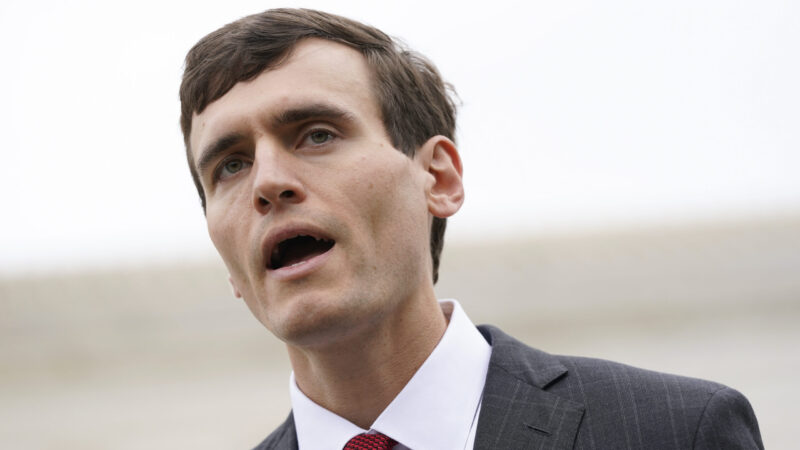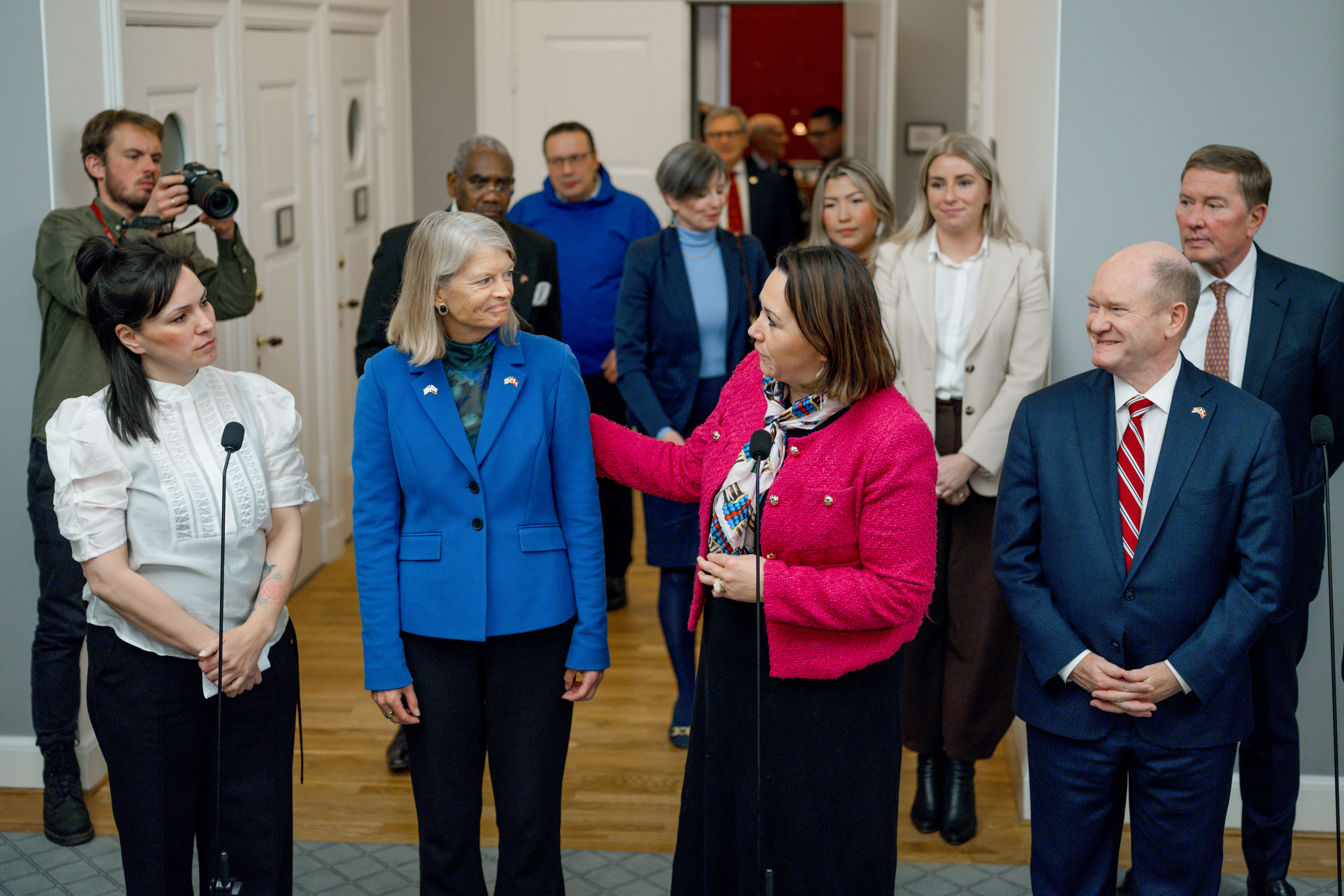Alabama, civic groups spar over law restricting assistance with absentee ballot applications
Alabama Solicitor General Edmund LaCour speaks with members of the press outside the Supreme Court on Capitol Hill in Washington, Oct. 4, 2022. LaCour's office on Wednesday, July 31, 2024, described a new ban on providing voters with absentee ballot application assistance as “commonsense ballot integrity,” while lawyers challenging the restrictions said they have halted important civic work in the community.
BIRMINGHAM, Ala. (AP) — The Alabama attorney general’s office on Wednesday described a new ban on providing voters with absentee ballot application assistance as “commonsense ballot integrity,” while lawyers challenging the restrictions said they have halted important civic work in the community.
The diverging depictions of the new law were aired during a federal hearing on Alabama’s request to dismiss a lawsuit challenging the statute. U.S. District Judge R. David Proctor did not indicate when he would rule, but said he understood the two sides want a decision before the November general election.
The new law, originally known as Senate Bill 1, puts restrictions on who can fill out and return a voter’s application form to receive an absentee ballot. It makes it illegal to distribute an absentee ballot application that is prefilled with information such as the voter’s name, or to return another person’s absentee ballot application. And it is a felony punishable by up to 20 years in prison to give, or receive, a payment or a gift “for distributing, ordering, requesting, collecting, completing, prefilling, obtaining, or delivering a voter’s absentee ballot application.”
Alabama is one of several Republican-led states to enact limitations on voter assistance. State Republicans said the measure is needed to combat “ballot harvesting,” a pejorative term for the collection of multiple absentee ballots. The Alabama State Conference of the NAACP, the League of Women Voters and other groups filed a lawsuit challenging the new statute, which they say “turns civic and neighborly voter engagement into a serious crime.”
During the hearing, Alabama Solicitor General Edmund LaCour described the law as a ballot-integrity measure that prevents paid operatives from corralling votes through absentee ballots.
“SB1 helps fight fraud and confusion by ensuring that the absentee ballot application process remains in the hands of voters,” LaCour told Proctor. He argued that there are exceptions for disabled voters who need assistance.
Organizations challenging the Alabama law said it infringes on free speech rights and is unconstitutionally vague about what type of conduct would be illegal. They also argued that it runs afoul of the federal Voting Rights Act.
“SB1 does not pass constitutional muster,” Valencia Richardson, an attorney with the Campaign Legal Center, told Proctor.
The new law has forced voter outreach groups to cease some operations, Richardson said, “because they are afraid of going to jail.”
Kathy Jones of the League of Women Voters of Alabama said the group has “basically had to stand down” from helping people with absentee ballot applications because of the uncertainty and fear.
“We are not willing to put our members at risk,” Jones told The Associated Press on Tuesday.
Proctor posed several hypothetical questions during the hearing, including whether a compensated person at an information booth or table would run afoul of the law if they had a stack of blank ballot applications to hand out to interested voters. The state replied that it would.
William Van Der Pol, a lawyer with the Alabama Disabilities Advocacy Program, told Proctor that it is wrong for the state to suggest that civic organizations are in the business of buying votes or inappropriately influencing voters.
“That is the exact antithesis of their mission,” he said.
Italian fashion designer Valentino dies at 93
Garavani built one of the most recognizable luxury brands in the world. His clients included royalty, Hollywood stars, and first ladies.
Sheinbaum reassures Mexico after US military movements spark concern
Mexican President Claudia Sheinbaum quelled concerns on Monday about two recent movements of the U.S. military in the vicinity of Mexico that have the country on edge since the attack on Venezuela.
Trump says he’s pursuing Greenland after perceived Nobel Peace Prize snub
"Considering your Country decided not to give me the Nobel Peace Prize… I no longer feel an obligation to think purely of Peace," Trump wrote in a message to the Norwegian Prime Minister.
Trump has rolled out many of the Project 2025 policies he once claimed ignorance about
Some of the 2025 policies that have been implemented include cracking down on immigration and dismantling the Department of Education.
U.S. lawmakers wrap reassurance tour in Denmark as tensions around Greenland grow
A bipartisan congressional delegation traveled to Denmark to try to deescalate rising tensions. Just as they were finishing, President Trump announced new tariffs on the country until it agrees to his plan of acquiring Greenland.
Can exercise and anti-inflammatories fend off aging? A study aims to find out
New research is underway to test whether a combination of high-intensity interval training and generic medicines can slow down aging and fend off age-related diseases. Here's how it might work.








